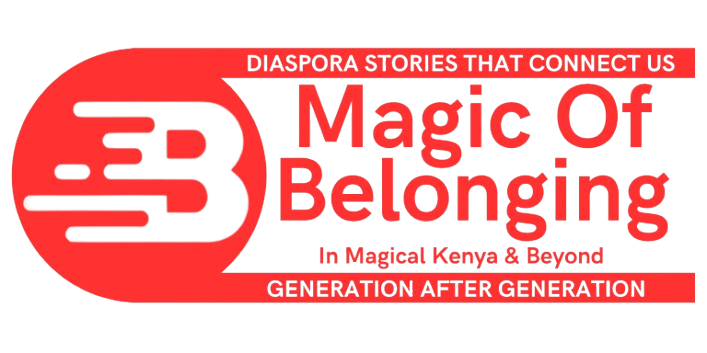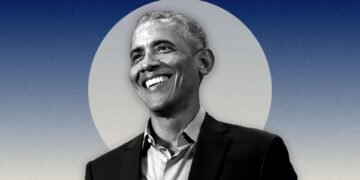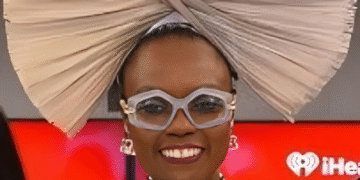There’s a quiet chapel near Lake Victoria where the wind moves through mango trees and time slows. It stands beside a dormitory built for orphaned girls—both the vision of Lupita Nyong’o’s grandfather. Not many know this is where one of the world’s most celebrated actresses returns to reflect. To breathe. To remember.
Because long before the red carpets, the Oscar, or the cover of Vogue, Lupita was just “Amondi,” a spirited girl raised in Nairobi, steeped in the stories, struggles, and song of her Luo heritage. Her global ascent is dazzling, yes—but it is also deeply grounded. Her story is proof that when you know where you’re from, the world can’t define who you are.
Her debut wasn’t just theatrical—it was spiritual. “That moment,” she would later recall, “I realized acting was a way of becoming more myself.”
The Girl Who Carried Her Village in Her Voice
Born in Mexico City in 1983 to Kenyan parents in exile, Lupita’s life began in the shadows of political unrest. Her father, Professor Anyang’ Nyong’o—now Governor of Kisumu—was forced to flee Kenya during the oppressive Moi regime. Her uncle, Charles Nyong’o, an outspoken activist, was murdered—his body thrown from a ferry in a government crackdown.
The family returned home before Lupita’s first birthday. She grew up surrounded by a culture that didn’t just celebrate storytelling—it lived it. “Our family gatherings were performances,” she once said. Her father’s lectures, her mother’s elegance, the vibrant cadence of Dholuo, and the folk tales of the elders all swirled into her sense of self.
At 14, she stepped onto Nairobi’s Phoenix Theatre stage as Juliet. Her debut wasn’t just theatrical—it was spiritual. “That moment,” she would later recall, “I realized acting was a way of becoming more myself.”
But acting alone wasn’t enough. She needed to be seen.
The Accent She Had to Break to Break In

When Lupita arrived at Hampshire College in Massachusetts, she found herself in a place that marveled at her, yet misunderstood her. The Kenyan accent she wore with pride became a barrier.
At Yale School of Drama, the message was clear: to be cast, she’d have to sound “less African.” So she did what many immigrants do—she adapted. She took vocal lessons. She cried. She silenced parts of herself to fit in. “I felt like I’d ridden myself of myself,” she said, with a heartbreak only a diasporan can truly grasp.
But Hollywood noticed.
Her searing performance as Patsey in 12 Years a Slave stunned audiences. It won her an Oscar. It validated her—but also tested her.
During the press tour, she made a quiet revolution. “From tomorrow,” she told her publicist, “I go back to my real accent. I want the world to know: being African is enough.”
And she did. And we heard her.
The Oscar That Belonged to More Than One Girl
When Lupita stood on that stage in 2014, golden statue in hand, the world leaned in.

“No matter where you’re from,” she said, “your dreams are valid.”
Kenya erupted. The pride wasn’t just national—it was ancestral. She wasn’t just Lupita; she was our Lupita. From Kibera to Kisumu, girls saw a mirror in her. Here was someone with their skin, their voice, their name, standing tall in a world that rarely made space for them.
The Oscar wasn’t just a trophy—it was a signal: African stories mattered.
The Woman Who Brought Africa to Hollywood—and Back
After her win, Lupita had a choice. She could chase the traditional path—or she could carve her own. She chose the latter.
She played Nakia in Black Panther—a fierce, Pan-African spy whose loyalty wasn’t blind, but brave. She embodied a Ugandan mother in Queen of Katwe. She didn’t just act; she amplified the beauty, pain, and possibility of African lives.
She wrote Sulwe, a children’s book about a dark-skinned girl’s journey to self-love. She launched a podcast spotlighting African voices. She used her platform not just to shine—but to light torches behind her.
Her mentor Mira Nair captured it best: “Her roots are strong, which is why she flies.”
Coming Home, Always
Fame never unmoored her.
Lupita often returns to her family home near Lake Victoria. In the quiet of her village, she walks where her ancestors walked. She listens to her father’s reflections. She watches her niece ask why she “sounds like a white somebody”—and she smiles, understanding the layers of identity.
Her voice now is neither American nor Kenyan—it’s Lupita. A blend. A bridge.
She reminds us that heritage isn’t rigid—it’s living. And belonging is not about fitting in, but about knowing who you are, wherever you are.
The Magic of Being Unapologetically African
Lupita doesn’t just represent a success story. She represents a model: of rooted global citizenship. Of using fame not to escape her roots, but to elevate them. Of carrying Kisumu on her back and never letting Hollywood forget it.
In a world obsessed with reinvention, she remains a daughter of her people.
And in doing so, she gives second-generation Kenyans—and the entire African diaspora—permission to be whole. To speak with their accents. To write their names without apology. To return home, not in shame or silence, but in celebration.
Because belonging isn’t about choosing one part of yourself over another.
It’s about claiming them all.
“Being able to use my platform to expand and diversify the African voice… I feel very passionate about that. It feels intentional, meaningful.” — Lupita Nyong’o





























